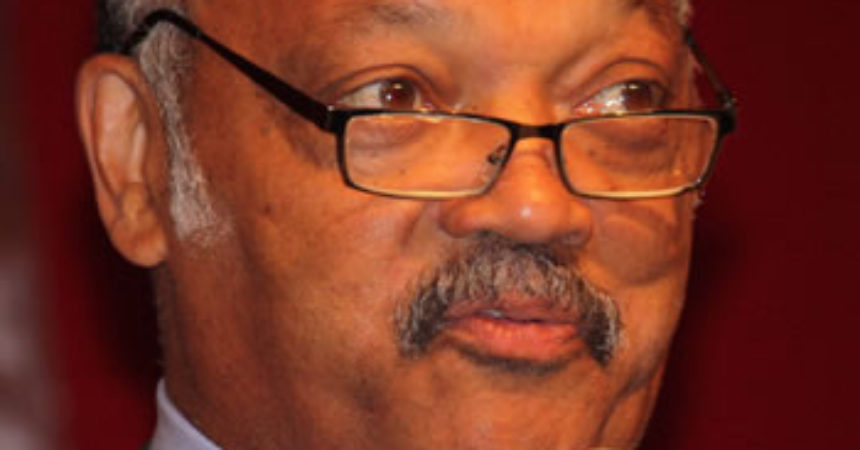
Faith in justice remains only if Mueller probes genuine

By Jesse Jackson
Trice Edney News Wire
Donald Trump often seems more shock jock than president. He likes to shock, say or tweet outrageous things, prove that he’s not just another politician. But now he is president; his words have impact, and his posturing can be dangerous.
Last week, he essentially endorsed police brutality before a gathering of police officers in Long Island: “When you see these thugs being thrown into the back of a paddy wagon, you just see them thrown in, rough, and I said, ‘Please don’t be too nice.’ ”
His remarks received significant applause, but hours later the Suffolk County Police Department issued a statement making it clear that it “will not tolerate roughing up of prisoners.”
The cries of Baltimore’s Freddy Gray, of Amadou Diallo, Manuel Loggins Jr., Ronald Madison, Kendra James, Sean Bell, Eric Garner, Michael Brown, Alton Sterling and many more could be heard from their graves. Each was a black man or woman who died at the hands of police.
Trump’s words are not simply bluster; his Attorney General Jeff Sessions is intent on turning them into policy. Sessions has scorned the Obama administration’s efforts to review police misconduct and to forge consent agreements on reforms with police departments from Chicago to Baltimore. He spreads the myth that reform handicaps law enforcement. In a nation that locks up more of its people than any in the world, he’s instructed U.S. attorneys to seek the harshest penalties available for those found guilty of violating the law.
Over the last decade, from Ferguson to Chicago to New York to Baltimore, our cities have witnessed major demonstrations and more in response to police brutality. Black Lives Matter demonstrations — remarkable nonviolent, civil disobedience — put police reform on the national agenda.
We began to see a bipartisan consensus emerging around sentencing reform, closing down privately owned for-profit prisons and reforming police practices from body cameras to community policing.
This reform consensus was emerging because police brutality not only tramples individual rights; it also impedes community law enforcement. It breeds anger and cuts off community cooperation. Police become seen as occupiers, not allies. The poorest neighborhoods in our urban areas are tinderboxes; too often, it is police brutality that sets them afire.
The Obama administration’s 13-month review of Chicago’s police force was completed just before Trump was inaugurated. It praised the “diligent efforts and brave actions of countless” officers, and paid tribute to the tough task they have. Yet it found that “a break in trust” impeded the police force’s ability to prevent crime: “trust and effectiveness in combating violent crime are inextricably linked,” it concluded, calling for broad, fundamental reform of police in Chicago.
Trump and Sessions disagree. They think, as Trump put it, that the laws “totally protect the criminal, not the officers. … (Officers are) in more jeopardy than (criminals) are. We’re changing those laws.”
This displays an utter ignorance of the reality of police misconduct and its victims. It is also dangerous. It gives a green light to those who would trample basic rights and mocks those who follow the laws. It encourages departments to turn a blind eye to their own practices.
In Newark, a consent decree reform agreement led to a dramatic reduction in crime. Its monitor, Peter Harvey, said reform helps police do their jobs.
“Remember, it’s the community that helps you police,” Harvey said. “Very few cities have enough cops to patrol a city 24-7 effectively, 12 months a year. You need the community to help you.” And the community won’t help if you “place community residents in chokeholds where they die, and then turn around and say, ‘Well, we want to be your friend.’ Those are inconsistent messages.”
Frustrated in Washington, Mr. Trump likes to rouse his base in speeches like that in Long Island. But these words are trouble, and his policies are worse. Across America, police reform is long overdue. What Trump and Sessions make clear is that, as long as they are in office, it will have to come from the bottom up, in the face of dangerous delusions at the top.







